Decanting Crawford Art Gallery – Removing the Friezes
Deinstalling the Sculpture Galleries
Removing Seán Keating’s Men of the South
Removing Fall of the Rebel Angels by Samuel Forde
Removing Murdo MacLeod’s Portrait of Roy Keane (2002)
Removing the iconic Canova casts
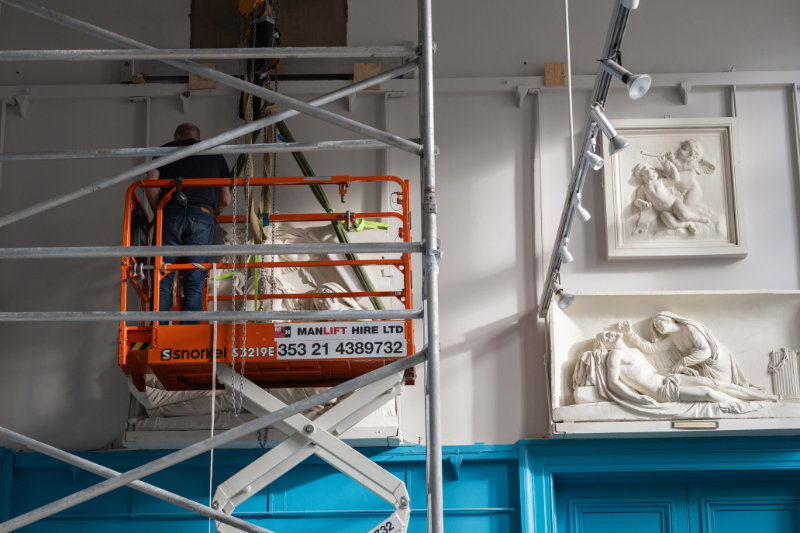
Removing the Friezes from Crawford Art Gallery. Photo: Joleen Cronin
As we prepare for our upcoming Capital Redevelopment Transforming Crawford Art Gallery, we have started to decant over 3,500 works of the National Collection housed at Crawford Art Gallery. These works will be moved to secure storage, and to other institutions for Touring and Sharing.
The removal of the friezes from our Sculpture Galleries was a monumental undertaking. Positioned high on the gallery walls, they were among the most challenging pieces to safely decant.
Following meticulous planning and consultation with specialist technicians, we employed heavy equipment—including forklifts, scissor lifts, and scaffolding—to ensure their secure removal.
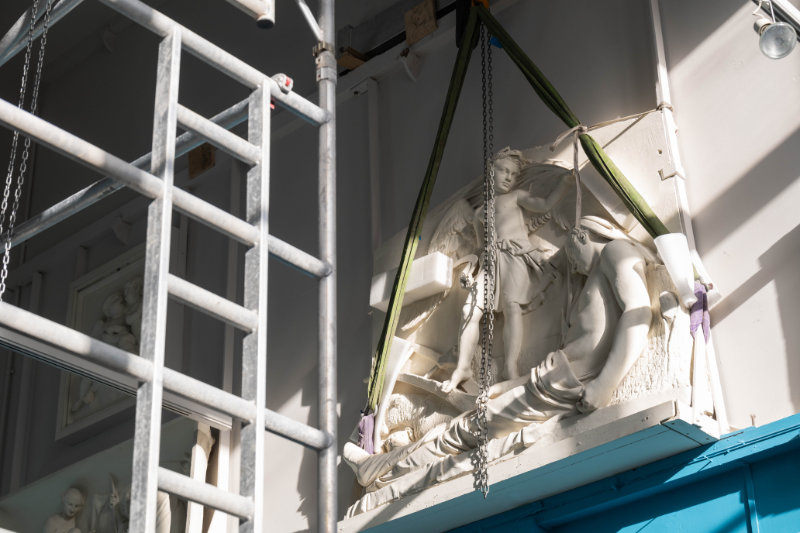
Photo by Joleen Cronin
Once detached from the walls, the works were carefully enclosed in custom-built crates, then safely loaded onto trucks and transported to secure off-site storage.
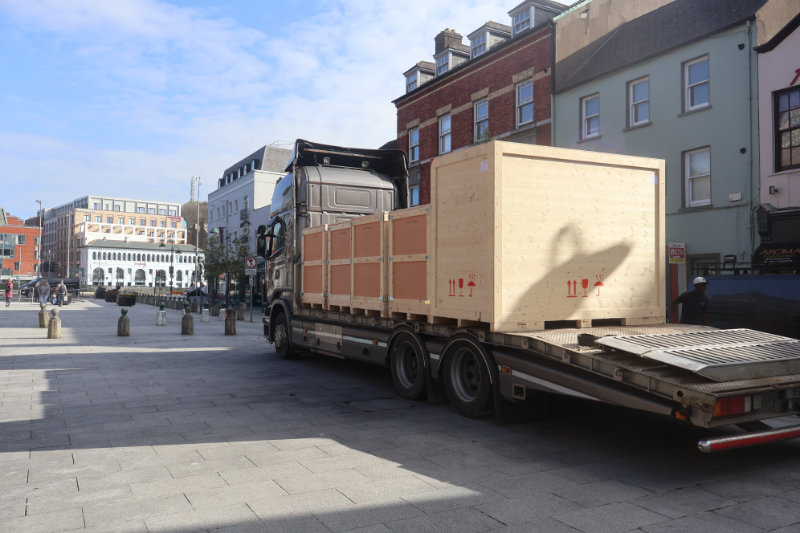
Photo by Chloé Griffin
Some of these friezes and relief sculptures had remained in place for over a century, including memorial works by Irish sculptor John Hogan and plaster casts of the Parthenon Frieze. During their removal, we were surprised to discover pine leaves tucked behind them—an early form of pest control commonly used in 19th-century museums.
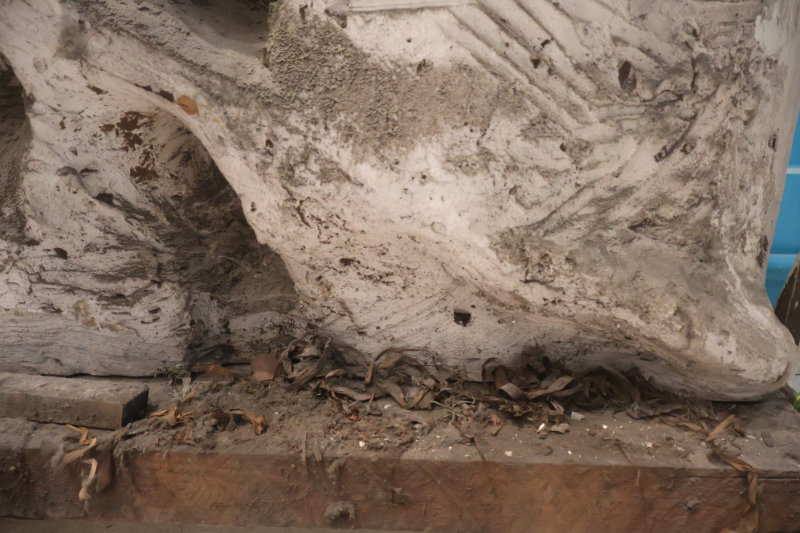
Photo by Chloé Griffin
Watch as our Curator of Collections and Special Projects, Dr Michael Waldron takes us behind the scenes to see the process involved in decanting our collection of friezes and relief sculptures from our iconic Sculpture Galleries.
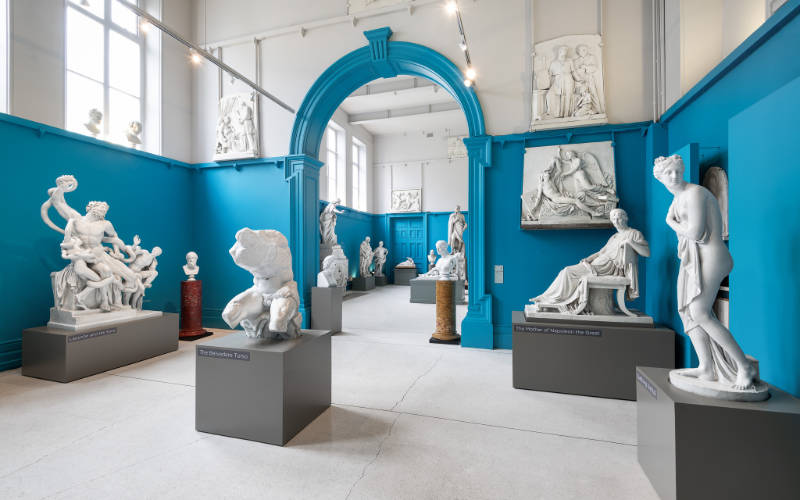
Sculpture Galleries. Photo: Jed Niezgoda
As we prepare for our upcoming Capital Redevelopment Transforming Crawford Art Gallery, we have started to decant over 3,500 works of the National Collection housed at Crawford Art Gallery. These works will be moved to secure storage, and to other institutions for Touring and Sharing. One of the major projects in our decant was deinstalling the works in our iconic Sculpture Galleries. With some works having never been removed in the 140 years since the construction of the Galleries, read below to find out more about the process behind this monumental task!
To map out our deinstall, we first consulted with external companies such as Taylor Pierce Ltd and Sculpture Form Ltd. 25 pasters casts and marble sculptures with weights up to 3 tonnes needed to be safely moved from the Galleries, requiring detailed planning, specialist lifting equipment, and coordinated, expert handling.
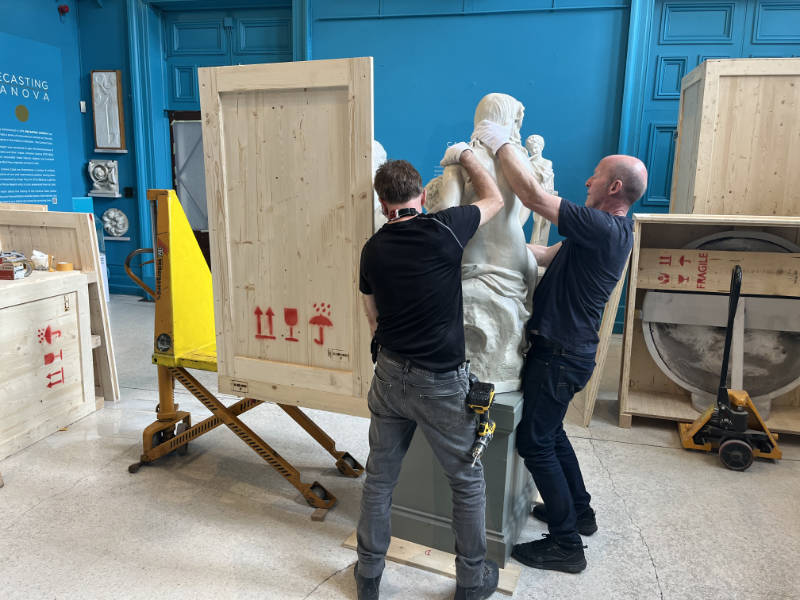
Image: Ellie O’Byrne
To safely remove the sculptures from their plinths, heavy lifting equipment including forklifts and a mobile gantry were utilised. The process required meticulous planning to ensure stability and prevent any risk of damage to the delicate artworks. Trained technicians operated the machinery, allowing for controlled movement to the packing areas.
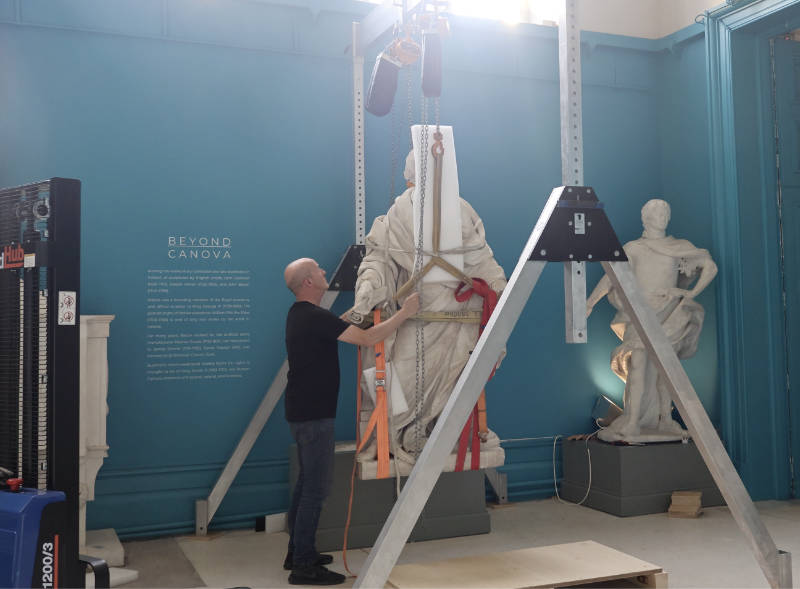
Image: Chloé Griffin
The next step is the creation of custom made, bespoke storage crate for each work. This allows the sculptures to be braced into the crate for extra protection during the moving process.
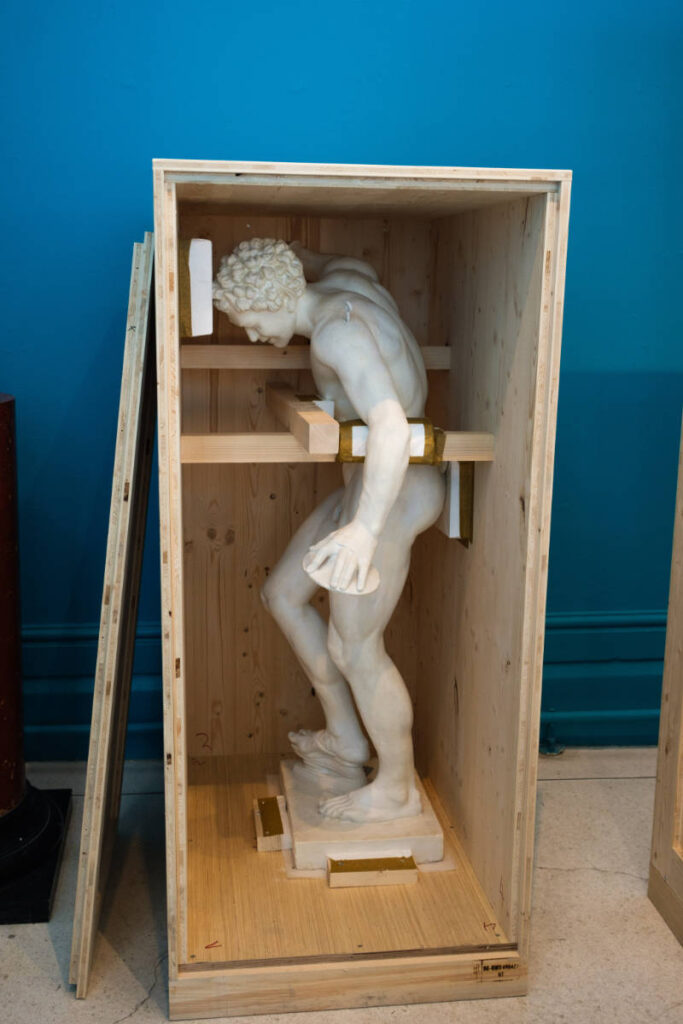
Image: Lost Studios
Once the crates are carefully sealed, they are ready to be moved to secure offsite storage until they return to a newly renovated Crawford Art Gallery!
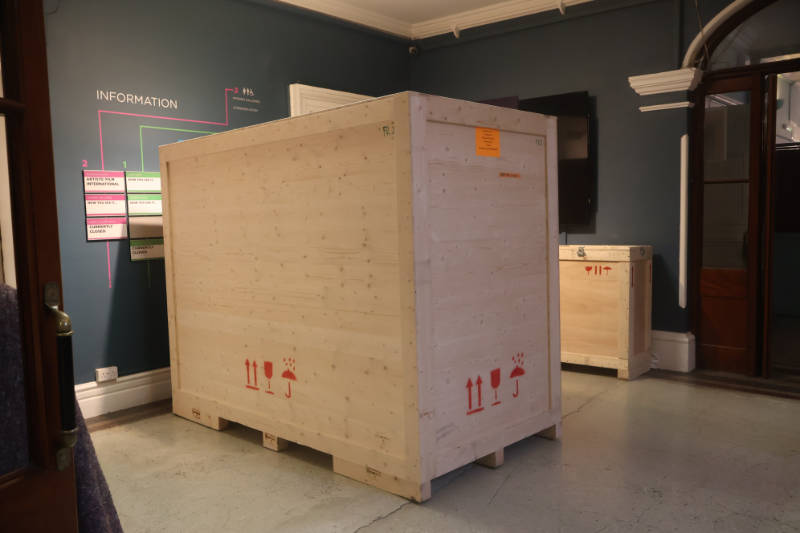
Image: Chloé Griffin
To watch our Production Manager Kathryn Coughlan describe this process in more detail, watch the below video!
As we prepare for our upcoming Capital Redevelopment Transforming Crawford Art Gallery, we have started to decant over 3,500 works of the National Collection housed at Crawford Art Gallery. Men of the South (1921-22) by Seán Keating is one of the most recognisable works in the collection. Its removal from the Gallery requires a meticulous process to ensure its safety and preservation. The following outlines the careful steps taken to decant the artwork with expert handling and conservation measures.
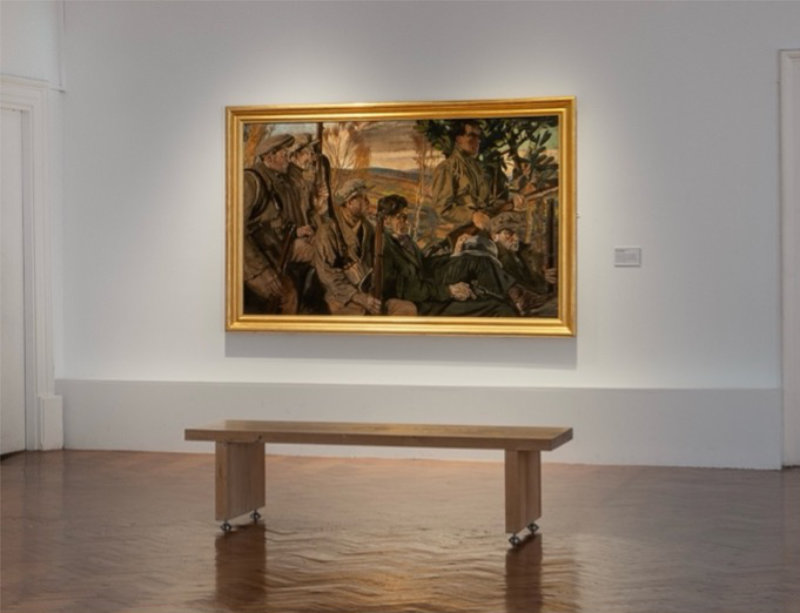
Image: Jed Niezgoda
To begin the process, our expert handlers carefully remove the work from the wall and rest it on foam blocks for protection.
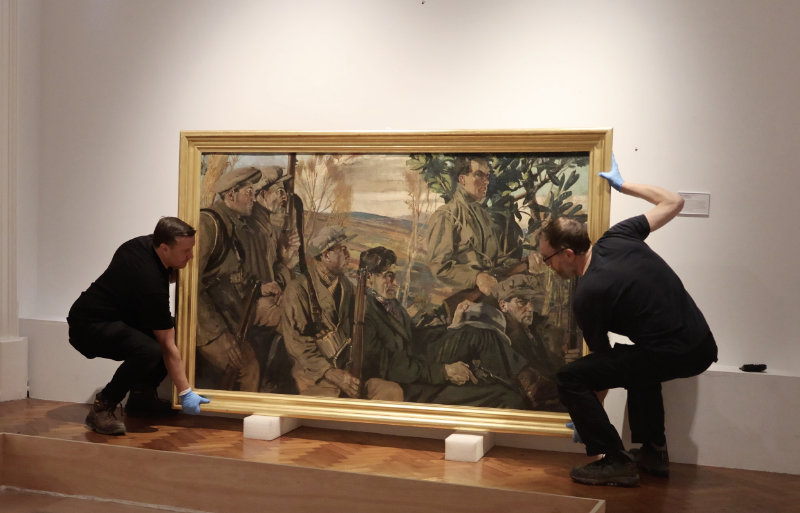
Image: Chloé Griffin
After the work is removed, our Arts Conservator conduct a thorough condition check to ensure the painting is safe for packing and transit, while also documenting any potential future conservation needs.
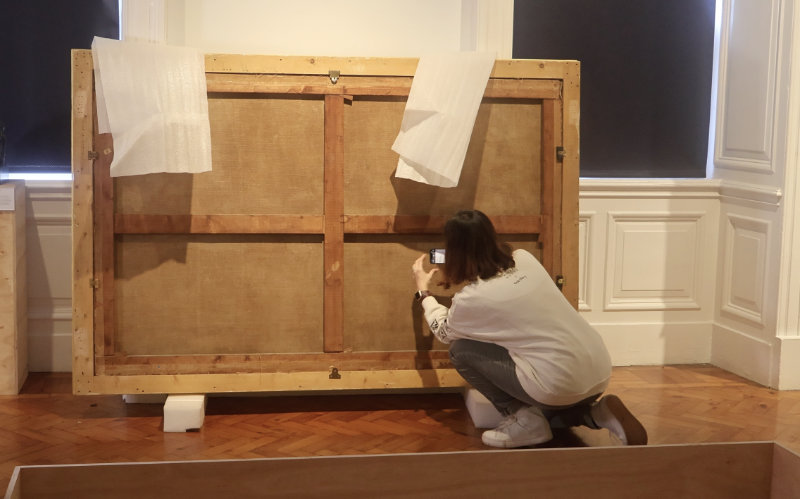
Image: Chloé Griffin
To prepare the work for transport offsite, the fixings are repositioned on the back of the frame in a way that differs from how they are usually placed while the artwork is displayed on the Gallery walls.
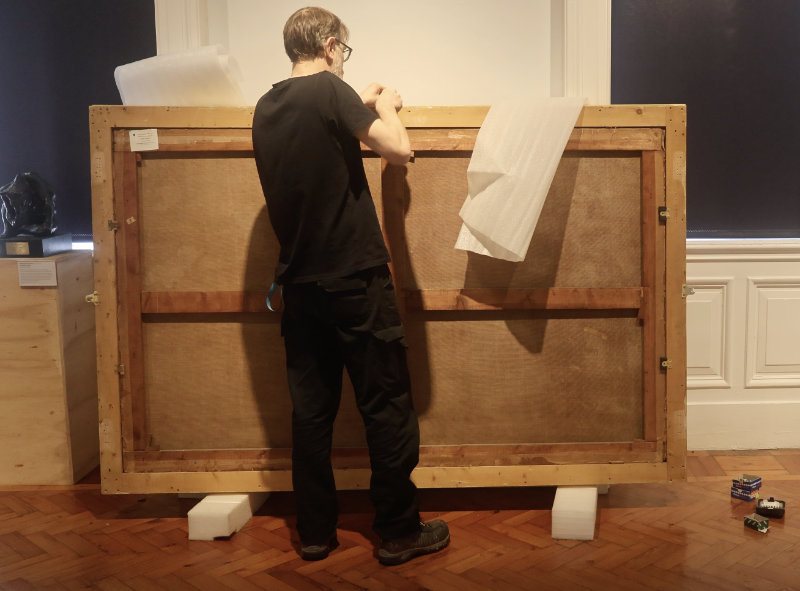
Image: Chloé Griffin
The work is carefully lowered into a wooden travel frame (T-Frame) for protection while being transported to our offsite storage.
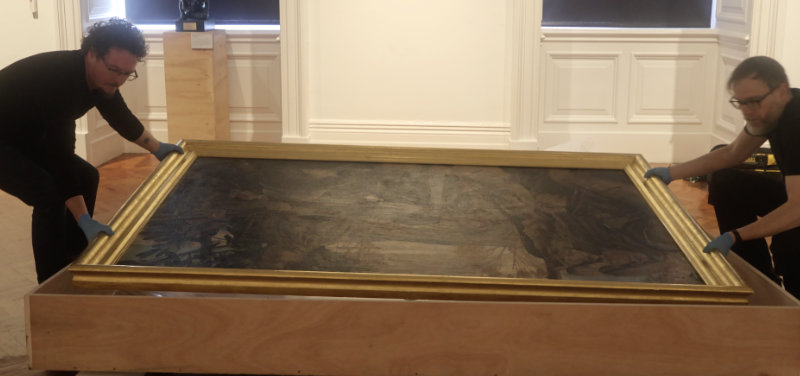
Image: Chloé Griffin
Additional batons are secured to the front of the travel frame for extra protection. With these precautions in place, the artwork is now ready for its journey out of the Gallery, until it returns to the newly transformed Crawford Art Gallery.
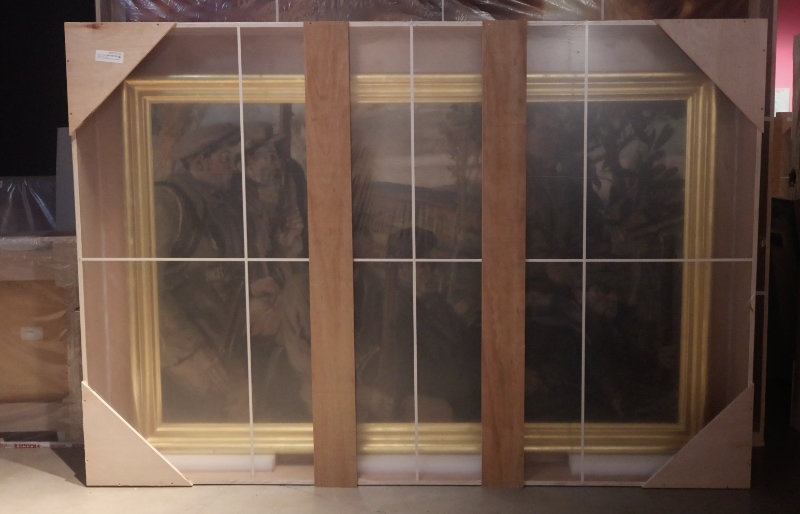
Image: Chloé Griffin
To watch our Registrar Jean O’Donovan describe this process in more detail, watch the below vi
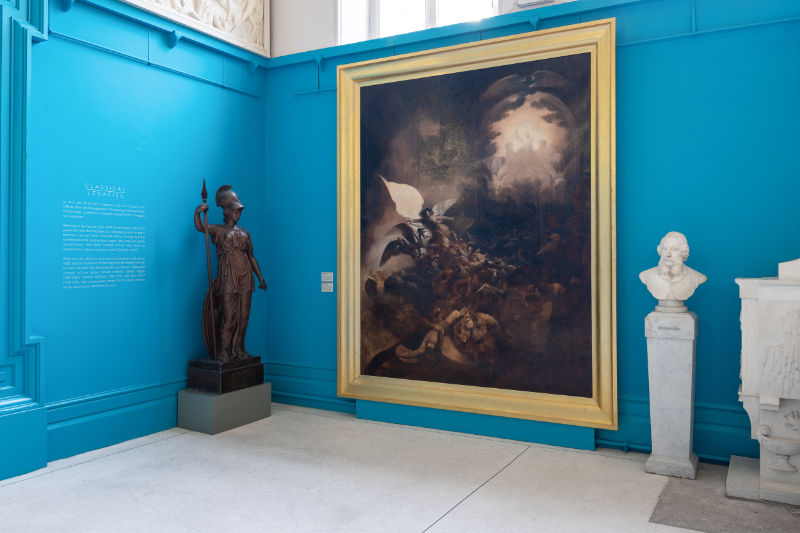
Image: Jed Niezgoda
As we prepare for our upcoming Capital Redevelopment Transforming Crawford Art Gallery, we have started to decant over 3,500 works of the National Collection housed at Crawford Art Gallery. These works will be moved to secure storage, and to other institutions for Touring and Sharing. Samuel Forde’s Fall of the Rebel Angels (1828) stands at a monumental almost 3 metre height, and has been in our Collection for over 110 years.
To begin the process of decanting one of our largest works, a team of expert technicians carefully remove the work from the wall.
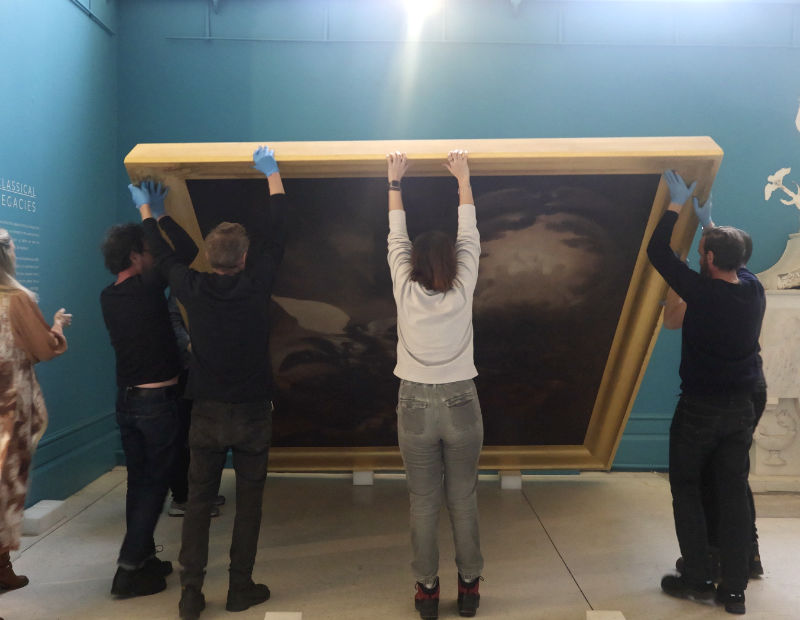
Image: Chloé Griffin
Due to its dimensions the painting is unframed for safety measures, and the frame is treated separately.
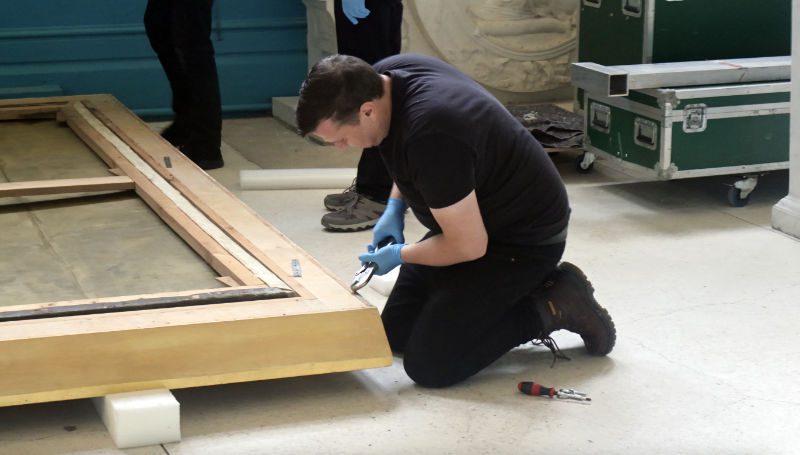
Image: Chloé Griffin
After the work is removed, our Registrar and Arts Conservator conduct a thorough condition check to ensure the painting is safe for packing and to document any potential future conservation the work may require.
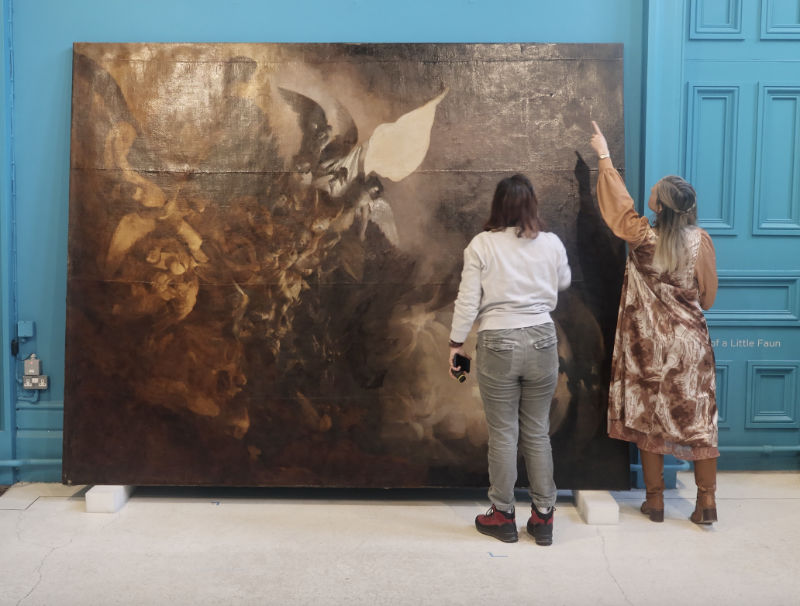
Image: Chloé Griffin
Once these steps are complete, the artwork is securely packed into a wooden travel frame (T-Frame) for protection and prepared for storage until it is ready to be returned to a new Crawford Art Gallery.
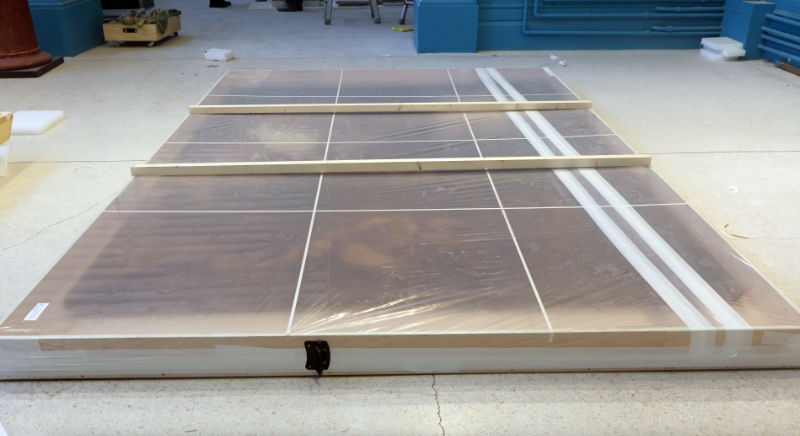
Image: Chloé Griffin
To watch our Curator of Collections & Special Projects Dr Michael Waldron describe this process in more detail, watch the below video!
As we prepare for our upcoming Capital Redevelopment Transforming Crawford Art Gallery, we have started to decant over 3,500 works of the National Collection housed at Crawford Art Gallery. These works will be moved to secure storage, and to other institutions for Touring and Sharing. One work which was safely removed from the Gallery was our iconic Lonradh window. Created by artist James Scanlon, Lonradh was commissioned by the Friends of Crawford Art Gallery in 1993 and had been catching the morning light on our Grand Staircase for 30 years.
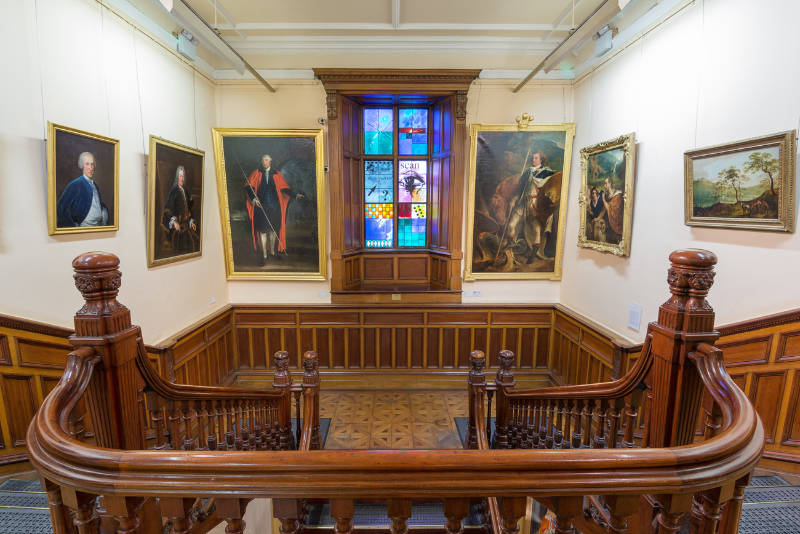
Penrose landing and window. Image: Jed Niezgoda
The individual glass panels are made from 2.4 millimetre laminated glass which has plastic in the middle to help reinforce the structure of the glass and prevent cracking during its lifespan.
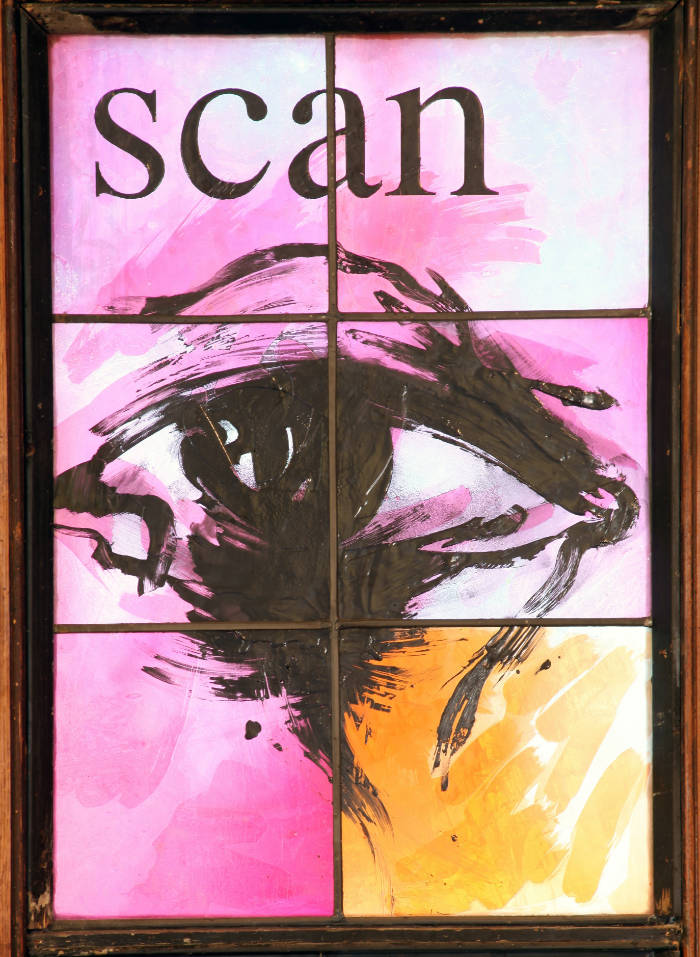
James Scanlon, Lonradh, (detail) 1993, stained-glass installation, 275 x 130 cm. Presented, Friends of the Crawford Art Gallery, 1993. © the artist
The process begins with scaffolding carefully erected along the staircase, providing secure access for the removal of the stained glass panels. This setup ensures that each panel can be safely handled and passed down to ground level with ease.
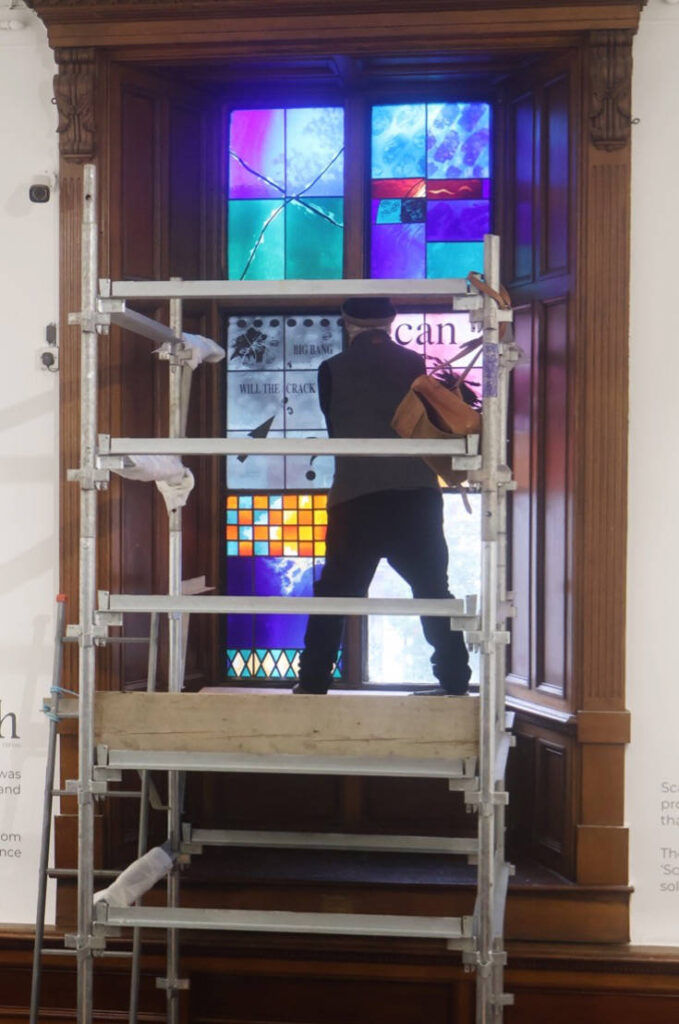
Image: Ellie O’Byrne
Next, the timber stops between the glass are removed. The panels are then carefully extracted, and the tacks are reinstalled.
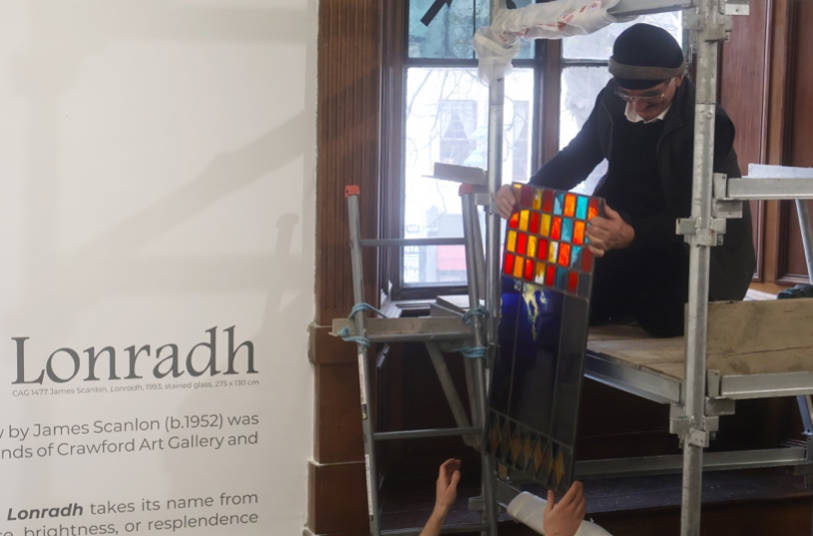
Image: Ellie O’Byrne
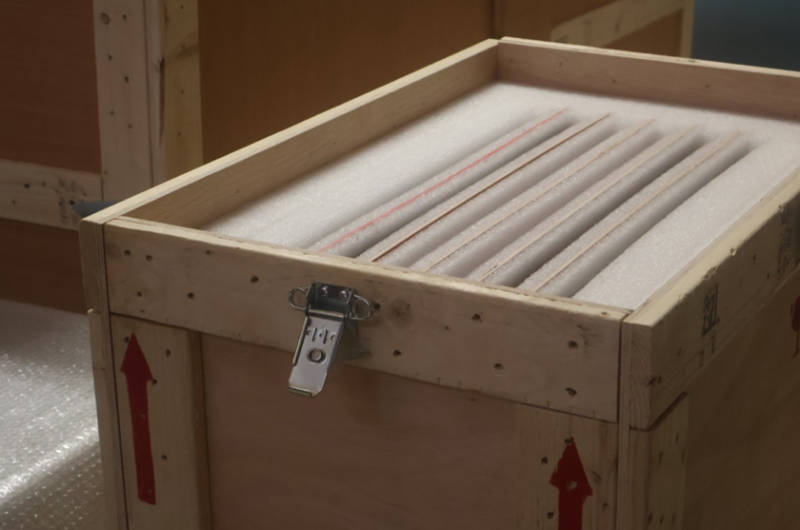
Image: Ellie O’Byrne
The panels are carefully wrapped and placed in a secure crate, where they will remain for the duration of the Gallery’s closure.
To learn more about the removal of the Lonradh window from the artist James Scanlon, watch this short video:
As we prepare for our upcoming Capital Redevelopment Transforming Crawford Art Gallery, we have started to decant over 3,500 works of the National Collection housed at Crawford Art Gallery. These works will be moved to secure storage, and to other institutions for Touring and Sharing. At the Gallery, we house an extensive collection of busts. Read below to find out the process involved in moving these works from the Gallery into secure storage while we are offsite!
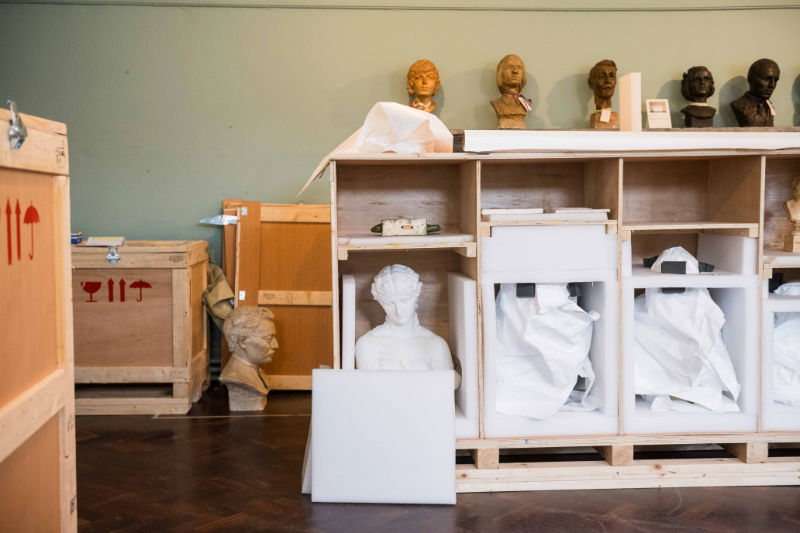
Photo: Joleen Cronin
To facilitate the decant process, in-house packing stations have been set up throughout the Gallery. At this first stage, foam blocks are measured and cut to scale in order to add extra protection for the busts when they are placed within their crates.
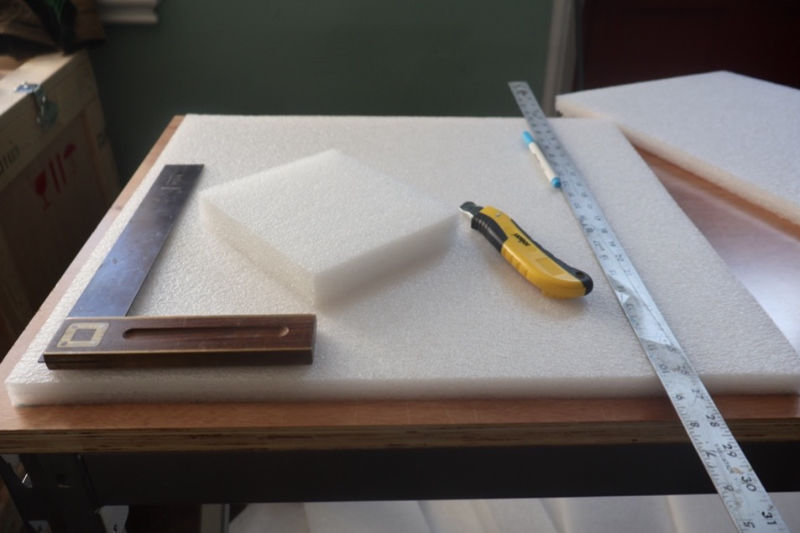
Photo: Chloé Griffin
Once all four busts have been carefully placed in their crates, the crate is sealed and the busts are moved offsite to secure storage, where they will remain until they are returned to the newly renovated Crawford Art Gallery.
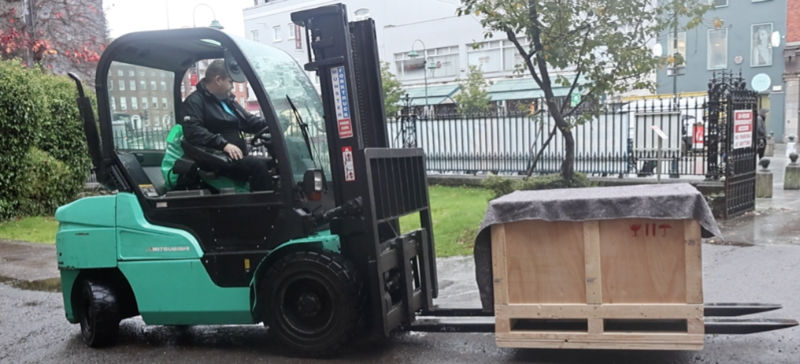
Photo: Chloé Griffin
To watch our Curator of Collections & Special Projects Dr Michael Waldron describe this process in more detail, watch the below video!
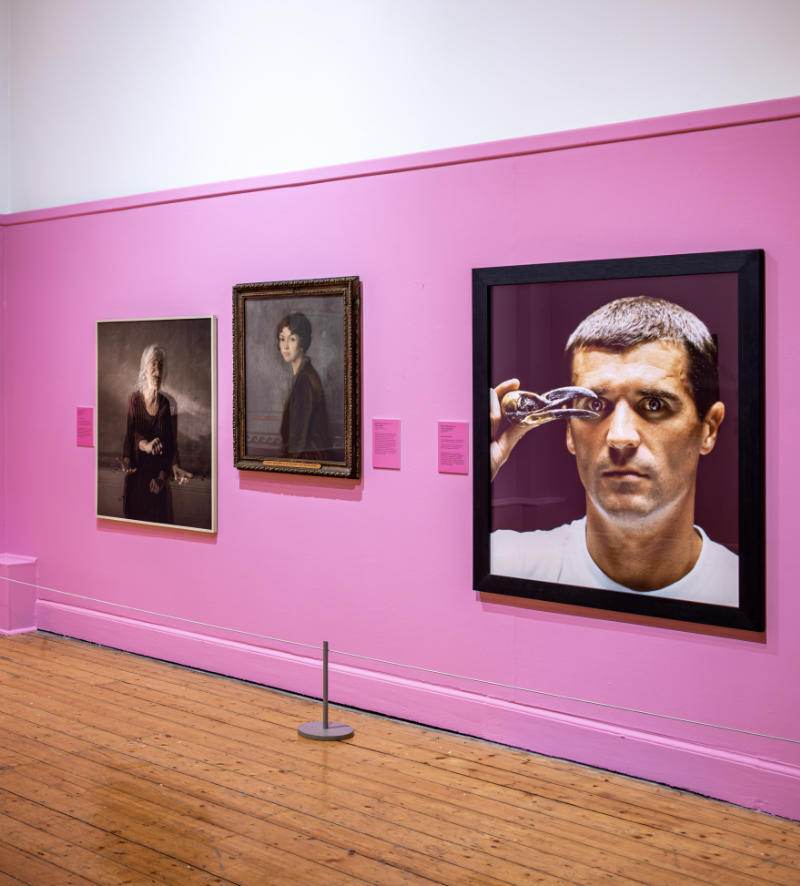
Photo: Marcin Lewandowski
As we prepare for our upcoming Capital Redevelopment Transforming Crawford Art Gallery, we have started to decant over 3,500 works of the National Collection housed at Crawford Art Gallery. These works will be moved to secure storage, and to other institutions for Touring and Sharing. One of the works recently decanted from the Gallery is our iconic Portrait of Roy Keane by Murdo MacLeod.
To begin the process, our technicians carefully remove the work from walls, and transport it to our Lower Gallery which has transformed into a packing station.
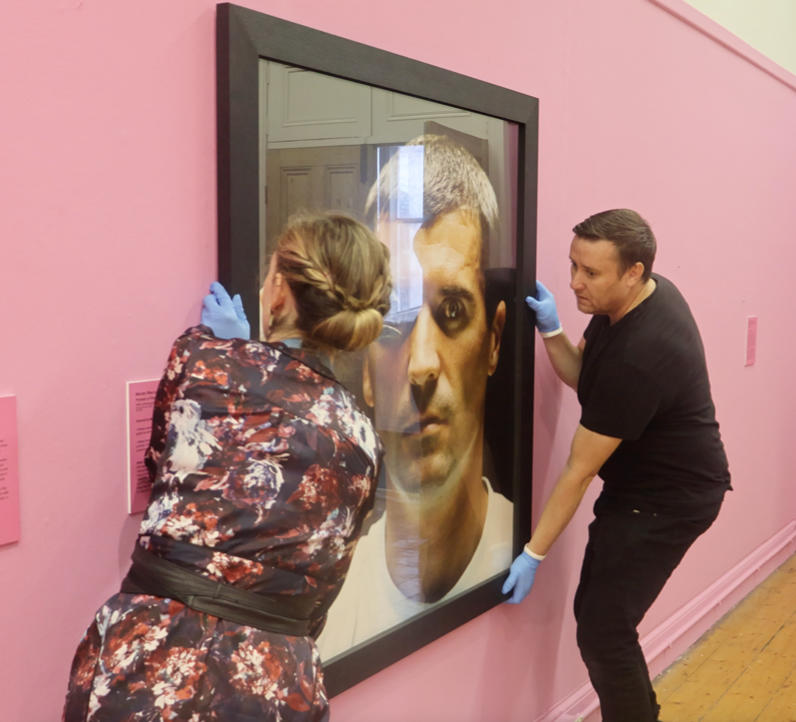
Image: Chloé Griffin
The work is then condition checked by our conservator to determine whether it needs additional care or conservation before it is carefully wrapped.
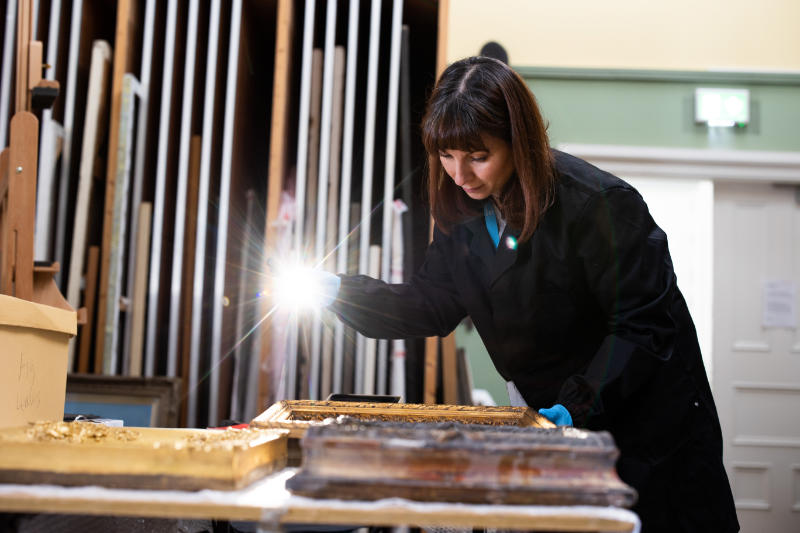
Image: Clare Keogh
After the condition check, the work is taken to a packing station. As this work is a photograph, it will be soft wrapped to protect it for transport.
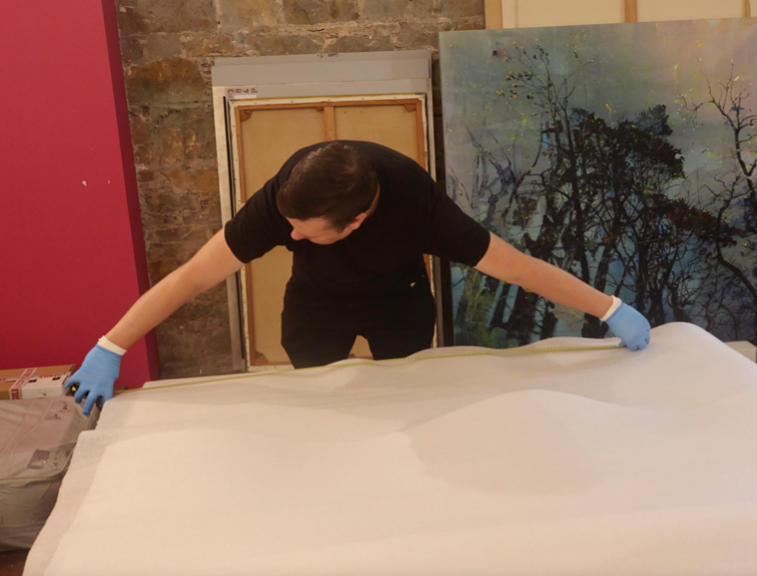
Image: Chloé Griffin
Once the wrapping is completed, the work will be transported to secure storage, where it will rest until it returns to the Gallery in 2027.
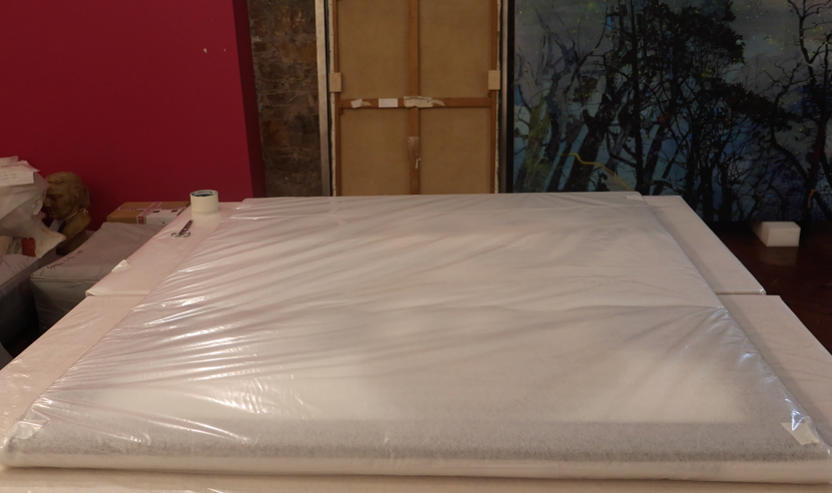
Image: Chloé Griffin
To watch our Registrar Jean O’Donovan describe this process in more detail, watch the below video!
Video by: Lost
Throughout the last few months as part of our capital redevelopment project Transforming Crawford Art Gallery, we have been expertly decanting works of the National Collection housed at Crawford Art Gallery.
In this exclusive glimpse behind the scenes, our incredible team is hard at work carefully removing artworks from the Gallery walls and storage. Each piece is condition-checked, conserved, and meticulously wrapped before its next journey—whether that’s on loan to other institutions or into temporary storage during the redevelopment!
Video by: Lost
Crawford Art Gallery’s iconic collection of Canova casts have left the building for the first time in 140 years, with a delicate process of crating and removing the much-loved artworks concluding this week.
It’s a historic moment in the life of the gallery, the casts, and Cork, as 25 plaster cast and marble works depart the 19th century wing of the gallery, built by brewing magnate William Horatio Crawford in 1884, in part to house the sculptures.
The Canova Casts were carefully packed in bespoke storage crates and moved to secure storage to prepare for Transforming Crawford Art Gallery, an ambitious multi-million euro redevelopment project that will see 50% more space brought to the city centre gallery, as well as a brand new restaurant and a new “sky gallery” with birds-eye views overlooking Cork city.
Over 3,500 artworks in Crawford Art Gallery’s collection are currently being decanted into safe storage in time for redevelopment works to begin in spring 2025.
To learn more about Transforming Crawford Art Gallery click here.
© 2026 www.crawfordartgallery.ie